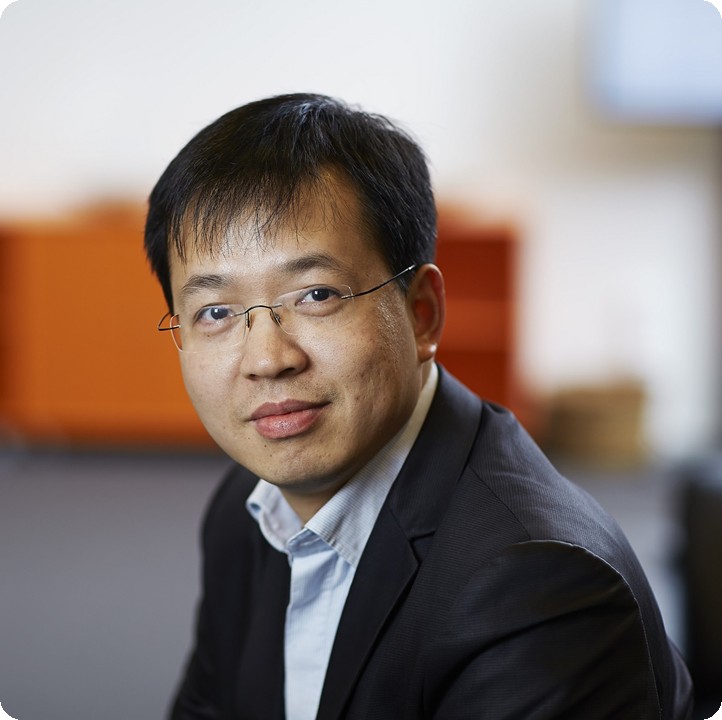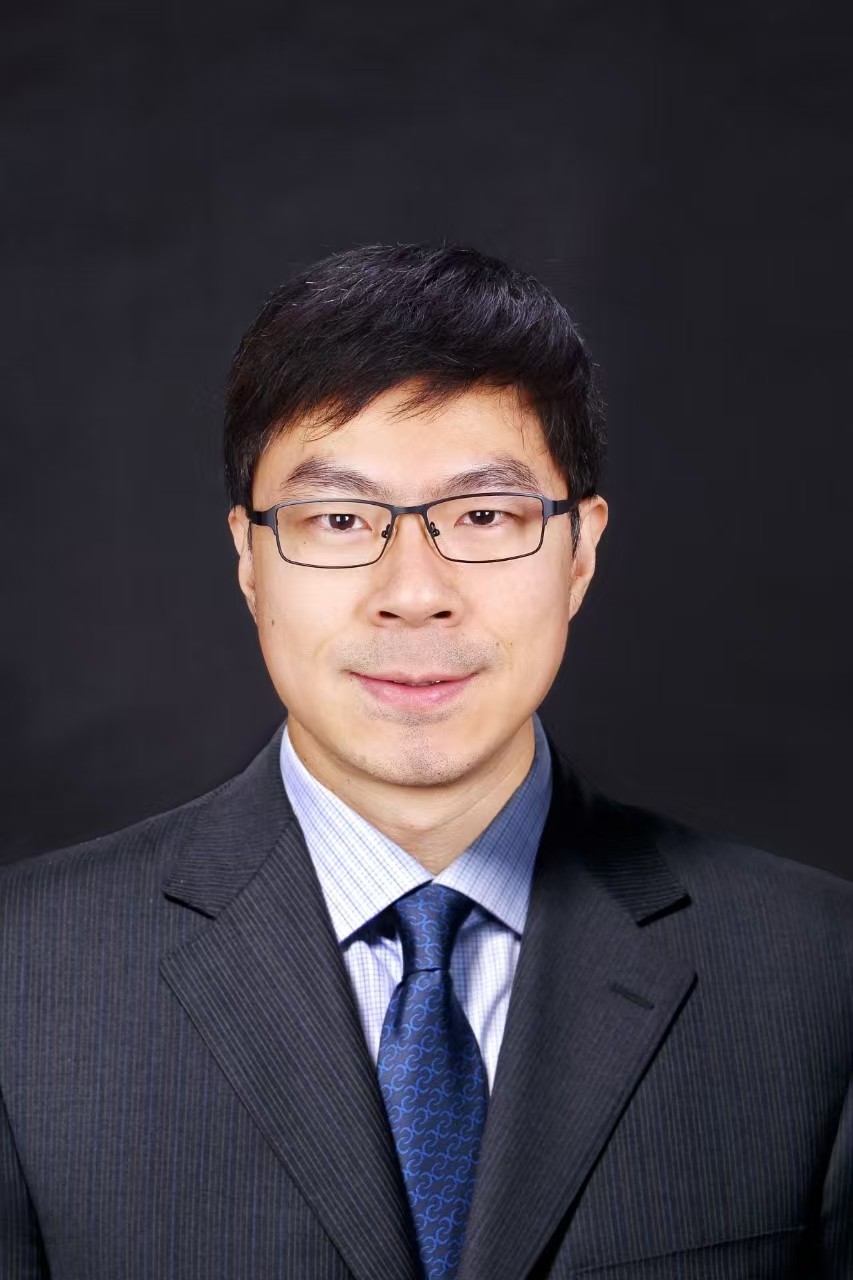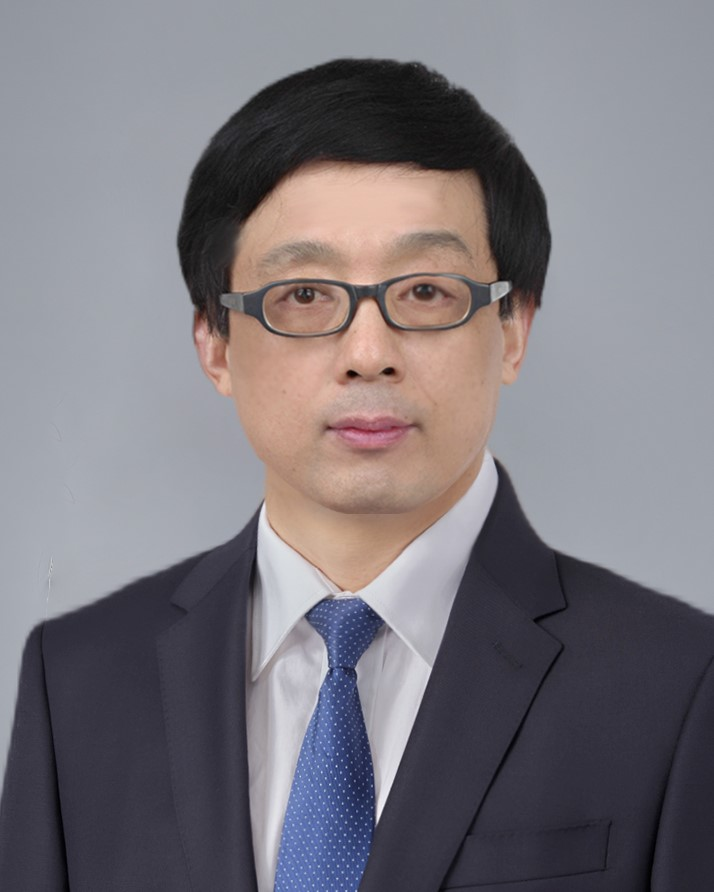Keynote Speakers
Prof. Yan Zhang
IEEE Fellow, IET Fellow
University of Oslo, Norway

Speech Title: AI for Digital Twin
Abstract: In this talk, we mainly introduce our recent studies on digital twin. We first present the concept and model related to Digital Twin (DT). Then, we focus on new research challenges and results when machine learning is exploited in DT, including federated learing, deep reinforcement learning and transfer learning.
Bio: Professor Yan Zhang, IEEE Fellow, is currently a Full Professor at the Department of Informatics, University of Oslo, Norway. He received a Ph.D. degree in School of Electrical & Electronics Engineering, Nanyang Technological University, Singapore. His current research interests include: 6G networks, Internet of Things (e.g., transport, smart grid). His works in these areas have received more than 35000+ citations and H-index 98. He received the prestigious award Clarivate Analytics (previously Thomson Reuters) “Highly Cited Researcher” since 2018. He is IEEE Fellow, IET Fellow, an elected member of Academia Europaea (MAE), an elected member of Royal Norwegian Society of Sciences and Letters Academy (DKNVS), and an elected member of Norwegian Academy of Technological Sciences (NTVA). He serves as the Chair of IEEE ComSoc TCGCC (Technical Committee on Green Communications & Computing) during 2021-2023 and 2019-2021. He is IEEE VTS (Vehicular Technology Society) Distinguished Lecturer for two terms (2016-2018 and 2018-2020). He served as a symposium/track/general chair in many conferences, including IEEE/ACM IWQoS 2022, IEEE ICC 2021, IEEE SmartGridComm 2021, IEEE Globecom 2017, IEEE PIMRC 2016, and IEEE SmartGridComm 2015. He is currently serving as an Area Editor/Editor/Associate Editor of several top-ranked IEEE Transactions/Magazines: IEEE Transactions on Wireless Communications, IEEE Network Magazine; IEEE Transactions on Network Science and Engineering; IEEE Transactions on Industrial Informatics; IEEE Transactions on Sustainable Computing; IEEE Transactions on Vehicular Technology; IEEE Transactions on Green Communications and Networking; IEEE Internet of Things Journal; IEEE Systems Journal; IEEE Vehicular Technology Magazine.
Prof. Lei Ren
National Science Fund for Distinguished Young Scholars
Beihang University, China

Speech Title: Industrial Internet of Things: Towards AI 3.0
Abstract: This report summarizes the hotspot technologies in the convergent innovation of the Industrial Internet and Artificial Intelligence (AI) 2.0, and explores the theoretical framework of Industrial Embodied Intelligence and Industrial Metaverse for the AI 3.0 era. Building on this foundation, it proposes the definition and connotation of Industrial Large Models, along with their system architectures, construction methodologies, and core key technologies. Centering on applications across the entire product lifecycle in industrial manufacturing, the report discusses typical scenarios for Industrial Large Models. Additionally, it addresses future challenges facing Industrial Large Models and outlines prospects for technological and industrial advancements.
Bio: Ren Lei, the first recipient of the National Science Fund for Distinguished Young Scholars in the field of Industrial Internet, serves as the Chief Scientist of the National Key R&D Program on Industrial Software. He is a Second-Class Professor and Blue Sky Distinguished Professor at Beihang University (BUAA), leading research in Industrial Internet and Industrial Software at the School of Automation and School of Software. He is also the Deputy Director of the Academic Committee at the National Key Laboratory for Complex Product Intelligent Manufacturing. His research focuses on Industrial Internet & Software, Industrial AI, and Industrial Large Models.
He has led over 30 national and provincial-level projects, including one 100 million-level project and three 10 million-level projects, such as the National Major Science and Technology Programs, National Key R&D Programs, and Major Research Plans of the National Natural Science Foundation. With 100+ papers published in top-tier journals (e.g., IEEE Transactions) and over 10,000 citations, he is recognized in Stanford's Global Top 2% Scientists Career Impact List. He has participated in drafting 15 international/national standards and holds 70+ patents and software copyrights, with core technologies serving hundreds of thousands of enterprises. He has received three provincial/ministerial first-class prizes.
Prof. Xiang-Yang Li
IEEE Fellow, ACM Fellow
University of Science and Technology of China, China

Speech Title: Collaborative Optimization in Multi-Level Networks of Industrial Intelligent Agents
Abstract: The Networks of Industrial Intelligent Agents (NIIA) represent a new generation of intelligent networks formed through the deep integration of industrial production systems and Internet-based intelligence. At its core lies the seamless fusion of perception, cognition, analysis, decision-making, and control across cyber-physical systems. Supported by industrial intelligence, the NIIA is poised to become the next-generation infrastructure that will enable high-end, green, and intelligent transformation of industrial production. Emerging technologies such as the Artificial Intelligence of Things (AIoT), edge–cloud computing, artificial intelligence, and the metaverse form the foundational pillars of the NIIA, profoundly transforming various aspects of industrial production. The key objectives of industrial intelligence include low-power ubiquitous sensing, stable large-scale connectivity, coordination of heterogeneous devices, knowledge-enhanced intelligence, industrial problem-solving optimization, and intelligent industrial design and manufacturing.
In this talk, I will discuss the challenges of building industrial intelligence and optimization frameworks that leverage both domain knowledge and industrial data. Specific focus areas include industry-specific intelligence enabled by knowledge-data fusion, efficient industrial intelligence, and intelligent optimization solutions. I will also share some of our preliminary theoretical findings, technological developments, system implementations, and application results in the field of industrial intelligence for discrete manufacturing.
Bio: Prof. Xiangyang Li is a Chair Professor, Executive Dean of the School of Computer Science and Technology, and Executive Director of the School of Information and Intelligent Science and Technology at the University of Science and Technology of China (USTC). He is an ACM Fellow, IEEE Fellow, ACM Distinguished Scientist, and a recipient of the National Science Fund for Distinguished Young Scholars. He is a former Co-Chair of ACM China, currently serves on the ACM Council, and CCF Council. Prof. Li previously held faculty positions at Illinois Institute of Technology (Assistant, Associate, and Full Professor), served as an EMC Endowed Chair Professor at Tsinghua University, and was a Visiting Researcher at Microsoft Research Asia. He holds a Ph.D. and M.S. in Computer Science from the University of Illinois, and dual bachelor's degrees in Computer Science and Business Administration from Tsinghua University. His research focuses on Industrial Intelliegence, AIoT, secure and private network/data computing, data sharing/trading.
Prof. Guihai Chen
IEEE Fellow, CCF Fellow
Shanghai Jiao Tong University, China

Speech Title: Self-Evolutionary Heterogeneous-Converged Edge Intelligence Computing
Abstract: Self-evolutionary heterogeneous-converged edge intelligence computing serves as a key technology for driving the widespread vertical application of artificial intelligence. The collaborative execution of complex and diverse learning tasks by large-scale heterogeneous edge devices presents unprecedented theoretical and technical challenges. These challenges primarily manifest as contradictions between: Ubiquitous self-evolutionary models and domain-specific knowledge; Efficient collaborative learning techniques and constrained edge resources; General-purpose software support environments and heterogeneous domestic hardware platforms. Such contradictions result in: Difficulty in cross-domain transfer of domain-specific knowledge; Inefficient fusion of newly acquired knowledge from multi-device collaborative learning; Incompatibility between runtime environments/programming frameworks and heterogeneous domestic intelligent chips. Consequently, the core requirements for the self-evolution of edge intelligence systems remain unmet.
Bio: Chen Guihai, Professor at the School of Computer Science, Shanghai Jiao Tong University; Fellow of CCF and IEEE. Formerly affiliated with the University of Hong Kong, Kyushu Institute of Technology (Japan), The University of Queensland (Australia), and Wayne State University (USA). His primary research focuses on distributed networks and data processing. With over 700 published papers garnering 26,000+ citations, he has received best paper awards at international conferences 18 times. Currently serves as: Honorary Chair of the CCF Technical Committee on Distributed Computing and Systems, Chair of ACM SIGCOMM China, Academic Committee Member of Huawei's National Key Laboratory. Awards include: First Prize in Natural Science by the Ministry of Education, First Prize in Jiangsu Provincial Science and Technology Award, First Prize in CCF Natural Science Award, First Prize in Shanghai Science and Technology Progress Award.
Prof. Chen Tian
National Science Fund for Distinguished Young Scholars
Nanjing University, China

Speech Title: Congestion Management in/beyond Datacenter Networks: Pyrrha as a case
Abstract: Congestion management, including congestion control and flow control, plays a critical role in the performance of datacenter networks. Due to the growth of port bandwidth and the scale of data center applications, new opportunities appear in this classic research area. A large number of researches are published recently. In this talk, I will first briefly review the status quo. I will then present our recent progresses in this field, which stick to our own motto "Congestion Control is Dead, Long Live Flow Control". At last I will talk about possible future directions of congestion management, especially those beyond datacenter networks, e.g., inter-datacenter and intra-router networks,especially our new paper Pyrrha in NSDI 2025.
Bio: Chen Tian, is currently a professor and doctoral supervisor at the School of Computer Science, Nanjing University. In 2023, he was selected for the National Science Fund for Distinguished Young Scholars. His research expertise lies in computer networks and distributed systems. He has published more than 100 papers in top academic conferences and renowned international journals in the fields of computer networks and distributed systems, such as SIGCOMM, NSDI, OSDI, FAST, SIGMOD, PPoPP, and Eurosys. He proposed a congestion management concept centered on traffic control for next-generation data center networks, designed a stateful programmable network tester with independent intellectual property rights, led the realization of large-scale parallel acceleration of open-source network simulation software, and served as the rotating chairman of the OpenNetLab international network testbed.
Copyright© NGDN 2026
2026 8th International Conference on Next Generation Data-driven Networks (NGDN 2026) http://www.ngdn.net/

